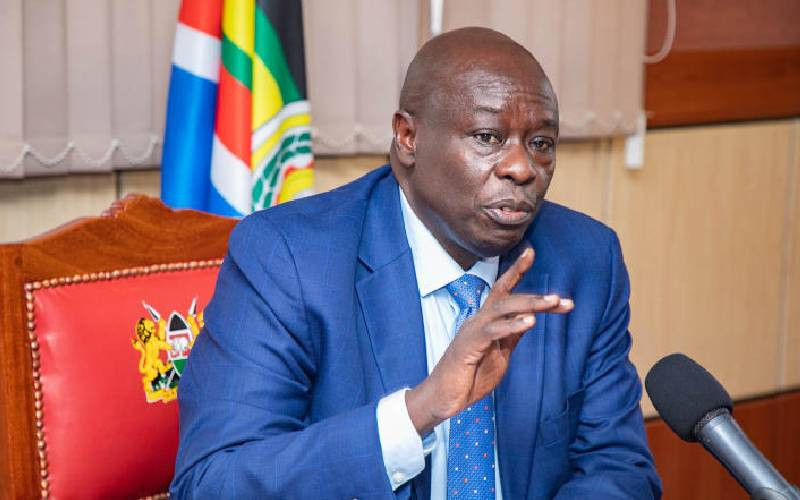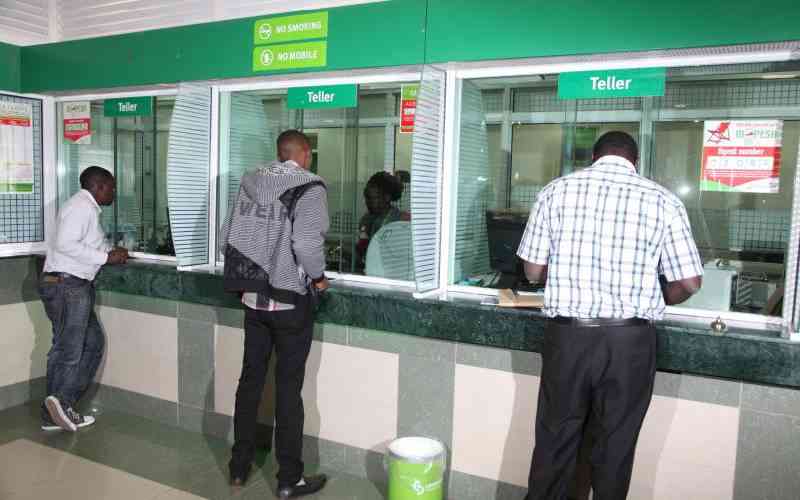NAIROBI, KENYA: Several studies released in the past indicate Kenya needs to create more jobs for its youths to accommodate high number graduating yearly from colleges and universities.
In 2015 for example, SAP and Endeavour (a global nonprofit organization) said Kenya needs to create more than 3.9 million jobs for a workforce projected to be at 3.4 million by the year 2020, due primarily to young adults entering the job market.
A new project by Kenya Commercial Bank and like-minded partners offers a ray of hope to thousands of youth currently jobless in the country.
On March 9 at a gathering which included US ambassador to Kenya, Robert Godec, government officials, industrialists and governors among other leaders, KCB said it has a Sh50 billion plan to help fight youth unemployment in the country.
The bank through the programme dubbed 2jiajiri said it will create approximately 2.5 million direct and indirect jobs into the Kenyan economy by working with 500,000 youths in selected sectors such as agricultural enterprise, automotive engineering, construction, beauty and domestic services.
The 2jiaijiri programme is a follow-up of the commitment the bank made during the Global Entrepreneurship Summit (GES) in July 2015 when it pledged to boost its investments in entrepreneurship.
Through its Foundation, the bank has roped in Government Ministries, industry players, development partners and private companies. It is working with more than 89 County Governments’ vocational institutions in the country to enroll students for this programme. On the industry front, Toyota Kenya, Naivas Supermarkets, Chandaria Industries and East African Portland Cement have agreed to facilitate the distribution opportunity for beneficiaries upon completion of their courses.
KCB Group Chairman Ngeny Biwott said the programme fits well within Kenya government’s resolve to boost youth employment, potentially raising country’s economic prospects.
“We believe that through partnerships with organisations, we can redefine the youth unemployment challenges we are facing,” said Mr. Biwott. “We are committing to changing the youth narrative in the country,” said the Chairman.
The programme targets both existing (70 percent) and potential entrepreneurs (30 percent). For existing entrepreneurs, 2Jiajiri seeks to up skill and formalize the technical and enterprise skills of the selected youthful entrepreneurs. Upcoming entrepreneurs will receive technical skills, financial support for startups and business advisory services. Cognizant of the fact that not all are entrepreneurs, some of them will be linked to work-experience programmes to give them hands-on training while exposing them to market opportunities.
Already, 2,000 youths have begun classes in 89 institutions spread across the country for the various 3-6 months courses. After their training, the graduates will be put under a 12 months incubation programme.
“Entrepreneurship and innovation are an integral part of our DNA. We operate under innovative platforms and with an incubation programme, we will promote ideas, offer mentorship, provide concepts and methods to create an optimal environment for free enterprise,” added KCB CEO Joshua Oigara.
The bank believes that this programme will be a game changer in the country where over one million young people enter into the labour market annually without any skills some having either dropped out of school or completed school and not enrolled in any college.
This is further compounded by the fact that almost 155,000 who join the labour market annually after completing training in Technical Vocational Education and Training Institutions or at the university to acquire skills that often do not meet the expectation of employers.
With statistics indicating that a total of over 1.3 million new employment places need to be created annually to meet the rising demand for jobs, this initiative will take advantage of the opportunities a large youth population offers while adequately tackling the skills gap challenge facing the country. Statistics show for example that the ideal rate of Engineers: Technicians: Artisans is supposed to be 1:13:60 but Kenya is currently at 1:3:13.
Stay informed. Subscribe to our newsletter
 The Standard Group Plc is a
multi-media organization with investments in media platforms spanning newspaper
print operations, television, radio broadcasting, digital and online services. The
Standard Group is recognized as a leading multi-media house in Kenya with a key
influence in matters of national and international interest.
The Standard Group Plc is a
multi-media organization with investments in media platforms spanning newspaper
print operations, television, radio broadcasting, digital and online services. The
Standard Group is recognized as a leading multi-media house in Kenya with a key
influence in matters of national and international interest.
 The Standard Group Plc is a
multi-media organization with investments in media platforms spanning newspaper
print operations, television, radio broadcasting, digital and online services. The
Standard Group is recognized as a leading multi-media house in Kenya with a key
influence in matters of national and international interest.
The Standard Group Plc is a
multi-media organization with investments in media platforms spanning newspaper
print operations, television, radio broadcasting, digital and online services. The
Standard Group is recognized as a leading multi-media house in Kenya with a key
influence in matters of national and international interest.









